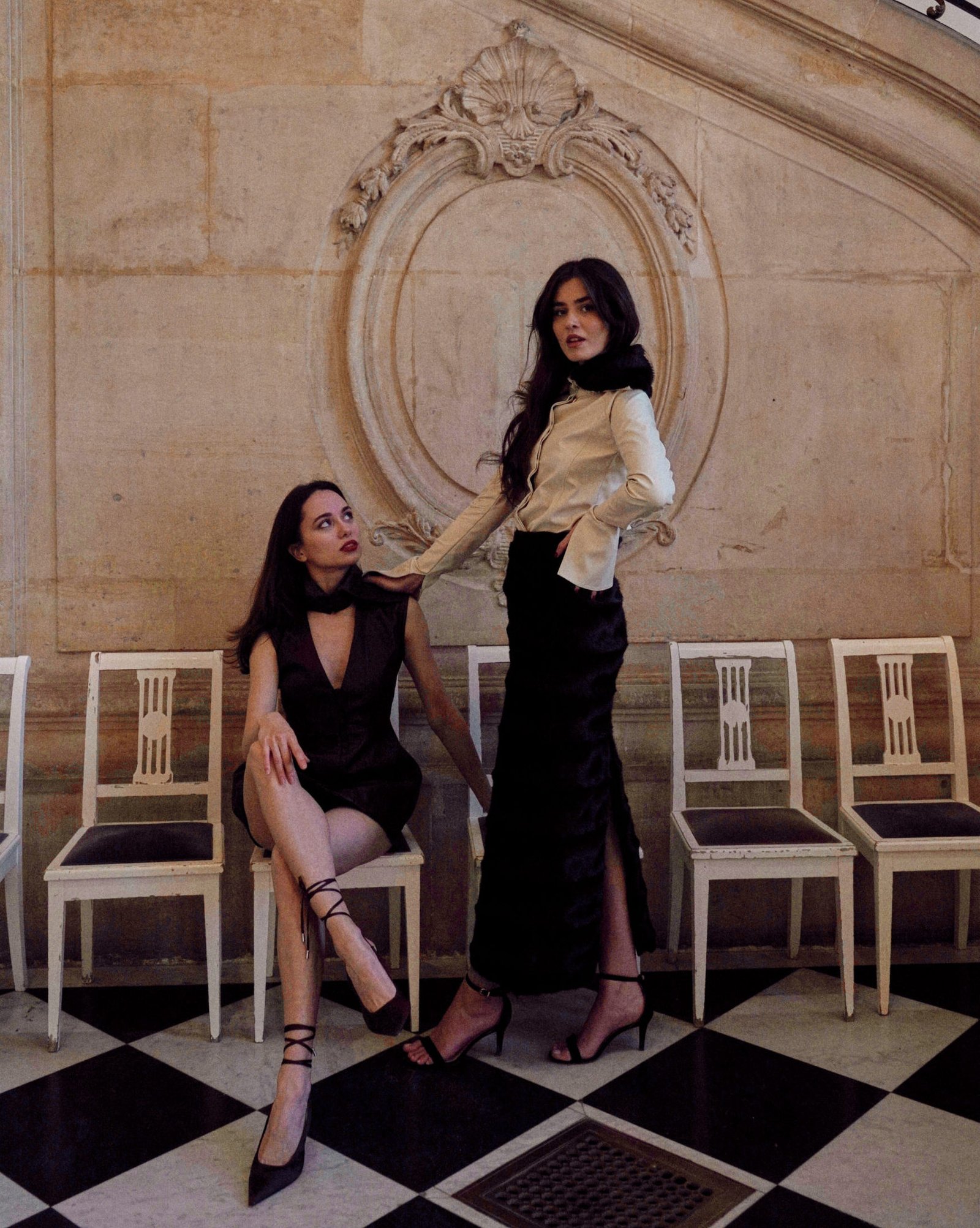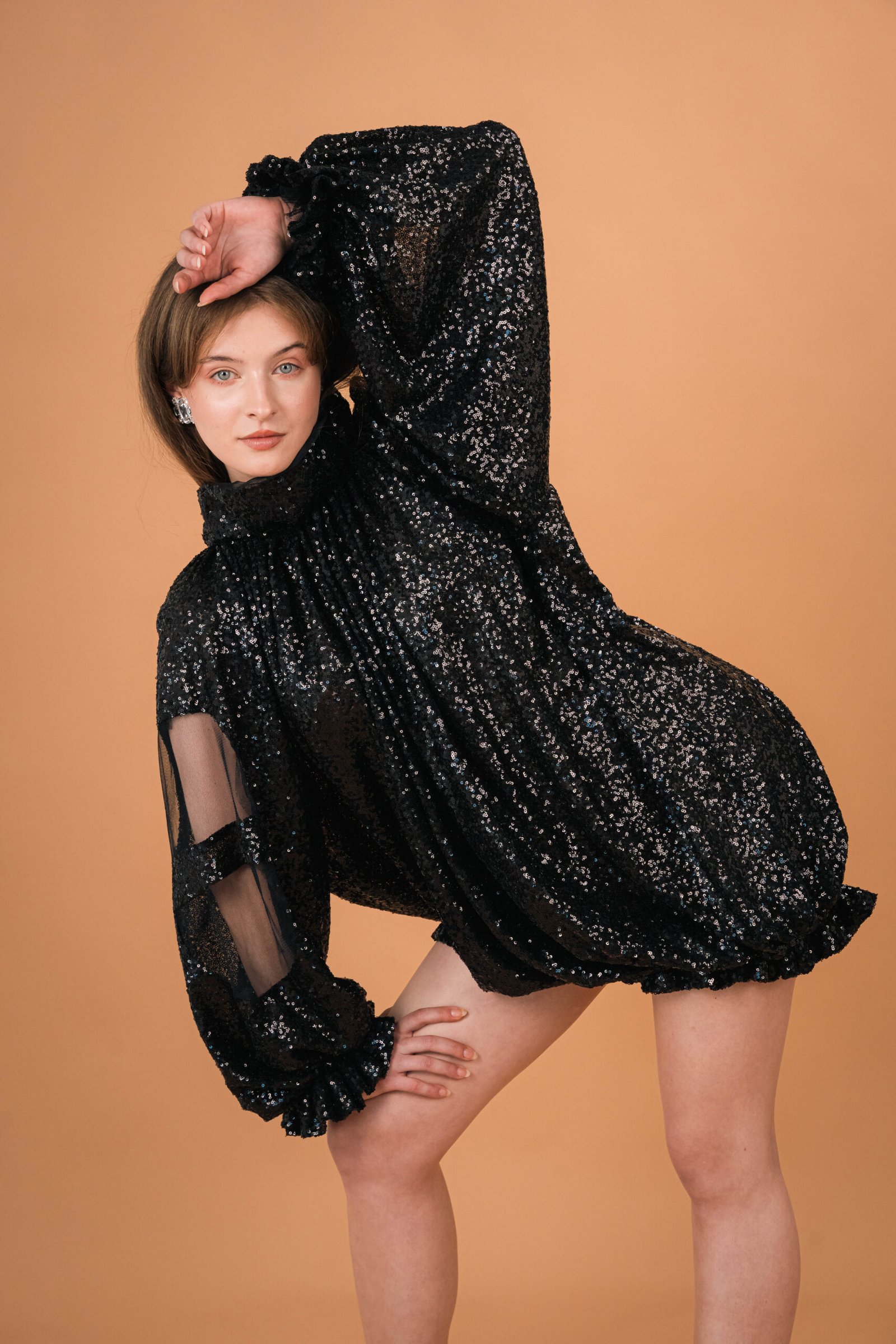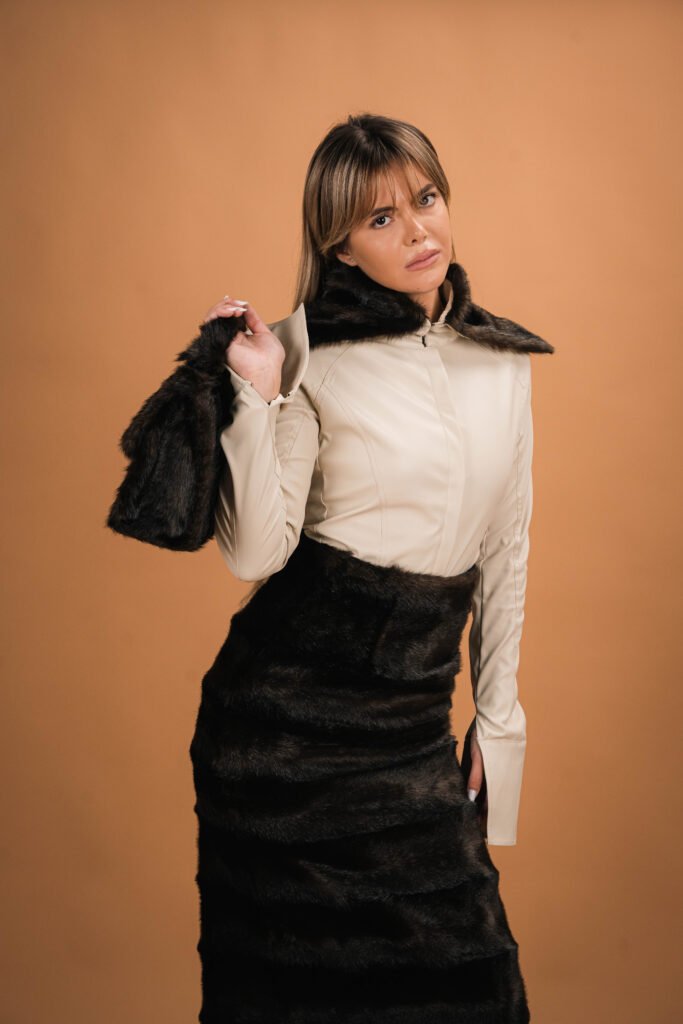
The little black dress
Simple, effective and present in every fashionista’s wardrobe, the little black dress is a statment piece. Made famous by Coco Chanel in the ’20’s it has transformed the black colour previously associated with mourning into a symbol of chic simplicity.
Versatile and accesible, the design allowed it to be appropiate for various occasions, from cocktail to bussines attire. It is a “blank canvas” that women can elevate by adding different accesories, from pearls to statement shoes, women can transform their look and inspire sofistication and elegance.
Dresses & Jumpsuits
Trousers for women
Initially seen as strictly men’s clothing, trousers have played a pivotal role in helping women dress comfortably and confidently. More than just a piece of clothing, trousers have come to symbolize women’s pursuit of equality, empowerment, and freedom.
In the 1930s, actress Marlene Dietrich made trousers visible and controversial, wearing them both in her films and in her personal life. The trend is now seen as both a practical option and a symbol of women’s liberation and empowerment.
Pants & Shorts
the mini skirt
The mini skirt, introduced in the 1960s, was a revolutionary piece of fashion that redefined women’s clothing and became a symbol of youth, liberation, and rebellion. British designer Mary Quant is credited as the inventor of the mini skirt. She named the skirt after her favorite car, the Mini Cooper, and designed it with young, modern women in mind.
The mini skirt wasn’t just a fashion item—it became a political statement. Women wearing mini skirts took control of how they presented themselves. Despite criticism for being provocative, the mini skirt became a symbol of cultural change and gained global popularity.
The mini skirt is more than just a piece of clothing—it represents a moment in time when fashion became a tool for self-expression and cultural change.
Skirts
THE BRA
Before bras, women wore corsets, which were restrictive and uncomfortable. The modern bra as we know it was invented in the early 20th century and it coincided with social changes. In the 1920s, the flapper movement embraced smaller, simpler bras that supported the boyish, flat-chested look popular at the time. Later, in the 60s, bras became a symbol in the feminist movement, with women questioning their necessity.
In recent years, the focus has shifted toward comfort and inclusivity, with the rise of bralettes and sports bras. Brands have embraced a more diverse range of sizes and styles to adapt to different body types, reflecting a broader movement toward body positivity and individuality.
Tops & Shirts
FASHION SHOWS
Fashion shows began as small, private events where designers would present their collections to elite clients in salons. Over time, especially by the mid-20th century, fashion shows evolved into public spectacles, showcasing creativity, style, and innovation.
Fashion shows turned fashion from a local affair into a global industry. Designers from around the world use fashion weeks to debut their collections to international buyers, influencers, and journalists.It allowed designers to express their artistic visions on a grand scale, often using elaborate staging, music, and themes to make bold statements.
Today, major fashion shows like Paris, Milan, New York, and London Fashion Weeks are cultural events that attract global media attention and influence trends around the world.






